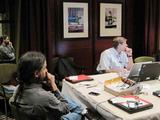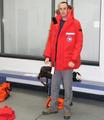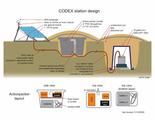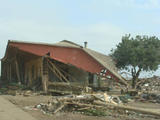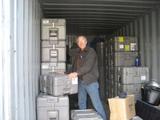
PICASSO - Program to Investigate Convective Alboran Sea System Overturn
"PICASSO consists of a multidisciplinary international investigation of the Alboran Sea, Gibraltar arc, Atlas Mountains and surrounding areas in the western Mediterranean using passive and active seismology, magnetotellurics, geochemistry/petrology/structural geology, and geodynamic modeling. The project was selected as the pilot experiment for TopoEurope, an EarthScope-like initiative recently approved by the European Science Foundation. The U.S. PICASSO investigators are from Rice (Lee, Levander), the University of Oregon (Humphreys), U.C. San Diego (Seber), WHOI (Chave, Evans), and the University of Southern California (Becker, Platt)". (From Original Proposal)

